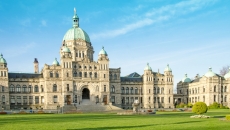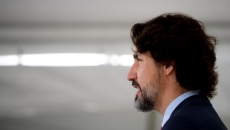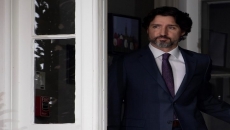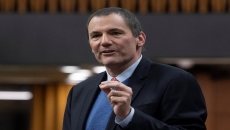TORONTO - Some Canadian universities are raising tuition fees for the new school year much to the consternation of students, who argue their costs should be going down, not up in light of the COVID-19 pandemic.
While schools argue they need an infusion of cash to deal in part with higher costs of remote teaching and learning, students say they already face challenges, such as difficulty in finding summer employment.
"Students are struggling more than ever with skyrocketing tuition increases they have faced over the years," Sofia Descalzi, national chairwoman the Canadian Federation of Students said on Friday. "It really is disappointing to see that in a time of crisis, universities and colleges are not ensuring affordability and accessibility of their education and reducing tuition fees, but they are going the opposite way."
For example, the University of Manitoba announced last week it would be raising tuition by an average of 3.75 per cent. Most undergrads will be paying about $250 more a year for a full course load but others will pay $640 more.
The school said provincial grants have been falling while remote teaching and learning in light of the pandemic is adding hundreds of thousands of dollars to its costs. The university said it was setting aside another $600,000 in student aid.
"We know that cost is a barrier to many, even in the best of times," said Janice Ristock, a vice-president.
Even in Ontario, where tuition was cut and then frozen for two years last year, the University of Guelph is among schools that have raised tuition for international students, who generally pay significantly more than their Canadian counterparts.
Horeen Hassan, with the Central Student Association at the university, said students were shocked at the increases, which the school estimates at between three and 15 per cent. International students already pay on average three times more than domestic students, she said, and COVID has wrecked their employment plans, too.
"Many international students are heartbroken that an institution they love so much is putting such a financial burden on them," Hassan said in a release.
The university said the increase that took effect this spring was similar to hikes adopted by peer institutions although its overall rates were lower than theirs. At the same time, it said it would bolster supports available to students in need.
"We understand that the increases may represent a hardship for some continuing and returning international students, particularly amid challenges posed by the COVID-19 pandemic," the University of Guleph said.
Students, who have long complained about the cost of post-secondary education, said the pandemic has exacerbated the situation. Even with some emergency financial help from the federal government, many will have difficulty getting through the summer let alone being able to deal with more expensive education in the fall, Descalzi said.
A recent survey for the federation and the Canadian Association of University Teachers found a significant number of students were rethinking their plans. Among the reasons were lost income, limited support, and concerns about remote learning. In all, almost one-third of those asked said they might not go to school given the situation.
Descalzi said universities should resort to belt-tightening at the administration and executive levels or dip into reserves before placing a higher financial burden on those furthering their education.
"We are in times of crisis," she said. "They should not be raising fees."
Dalhousie University, which is raising tuition three per cent, said it was taking steps to cut costs and limit non-essential spending. The school noted that 41 per cent of its operating money comes directly from students and increases were necessary to maintain academic standards.
"This was true before the COVID-19 pandemic and is even more apparent today," spokeswoman Janet Bryson said.






